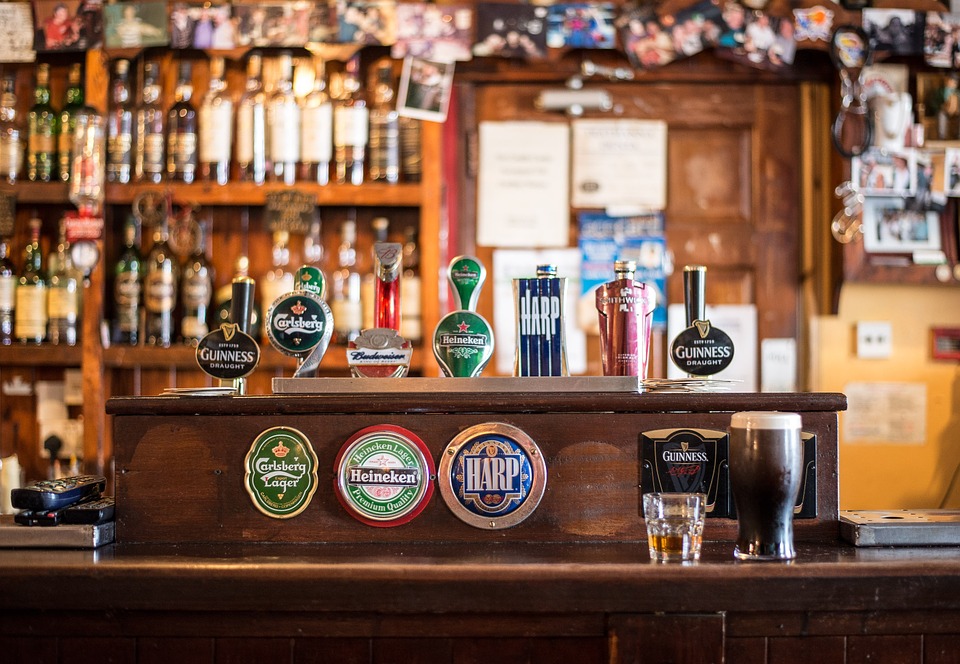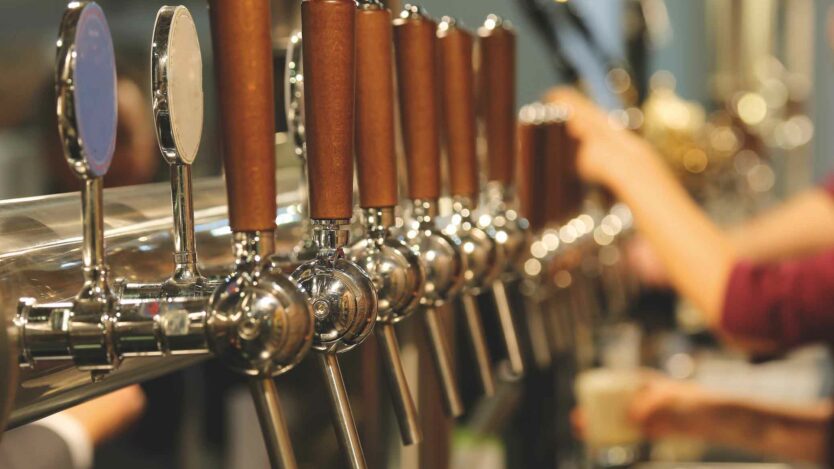Whether you’re popping in for a quick pint, or having a sit-down meal, you won’t believe the challenges golf clubs have managing this vital part of their offering. We reveal all in our series, The Price of Club Golf
This article is part of GCMA Insights – topical content for golf industry professionals, discussing the things that matter to those who work in golf clubs.
We golfers are a demanding lot. We want a cheap pint, and good food at a great price. Members expect what they consume before and after a round to be discounted – and most clubs offer at least a 10 per cent cut on what ‘outsiders’ would expect to play.
You’d imagine the turnover of food and drink over a year at your club, in terms of pints and pies sold, would be enormous.
But, for the unwary, F&B (as food and beverage is known in the trade) can be a financial black hole. Plenty of clubs keep it at arms-length, franchising their operations out, but what is the bottom line for those who do it themselves?
Denham, in Buckinghamshire, would be one of the more successful operators. The private members’ club are renowned for their Sunday lunches and functions. How do the numbers come out?
“On £550,000 ex-Vat turnover last year we made a £7,000 profit,” said General Manager Richard Penley-Martin. “It’s going to be a bit tighter this year because, obviously, we’ve got to factor in a 10% increase with the living wage.
“What we’re trying to do is make sure we keep the volumes up. That’s difficult because members expect discounts off the prices, so you’ve got to sell more product when your wages are going to go up 10%, and you’ve got to cover that now.
“So if our wages go up by 10%, we’ve got to sell another £15,000 worth of product to not lose out. Fortunately, we’ve got very good catering here but it’s a challenge.
“Like a lot of places, when you look at the F&B operations, when it comes to club functions, it’s generally the same people who are supporting it.
“We’ve got a slightly different dynamic that about 40% of our members live in London so, for them to come here, they’ve got a train or car journey.
Get involved in the debate.
To join the GCMA, click here, or to organise a call with a call with a member of the GCMA team, just complete the form below.

“Suddenly, an evening out here becomes more expensive whereas there are plenty of places they can go in town that they can walk to or is a tube journey. We’ve got to be very aware of that and we’re spending a lot of time understanding where the value is there.”
As Penley-Martin suggests, price increases – fuelled by inflation and the cost-of-living – will make F&B a bigger challenge in 2024, with members generally routinely resistant to forking out more cash.
Kerry Alligan-Smith, General Manager at Redditch, in the West Midlands, confirmed the wages and salaries increase – estimating the government-enforced changes will add some six to eight per cent onto the club bill.
WHY JOIN THE GCMA?
Membership of the GCMA unlocks a network of like-minded professionals, provides you with support in your professional and personal development, and provides you with a multitude of benefits. Whether that’s the tools that will help you to excel in your profession, or a wide range of services to support your wellbeing, signing up to the GCMA is joining a community.
“The minimum wage will have a big impact this year as lower paid salaried staff require higher increases,” she explained.
“Food costs have increased between 10 and 25 per cent. We aim for a 60 per cent gross profit, but the demand from members means this is becoming more challenging.
“We’ve also seen an increase in on the Bar cost of sale – some clubs saw that go up 17 per cent in 2023.”
She added that members need to understand the impact of costs for providing a service at clubs and the gross profit margin still needs to take into consideration costs outside of buying in stock.
Employing staff to make the food, serve the food, clean the plates is all added costs outside just buying the stock.
Expectations on quality can’t always be met with value – so decisions for clubs to consider is: do your members expect to have higher quality produce and excellent service or value produce but lowered expectations? The latter would always cause more complaints and damage clubs’ reputations.
This article is part of GCMA Insights – topical content for golf industry professionals, discussing the things that matter to those who work in golf clubs.
Get involved in the debate. To join the GCMA, click here, or to organise a call with a member of the GCMA team, just complete this form and we’ll be in touch!
Enquiries
"*" indicates required fields



